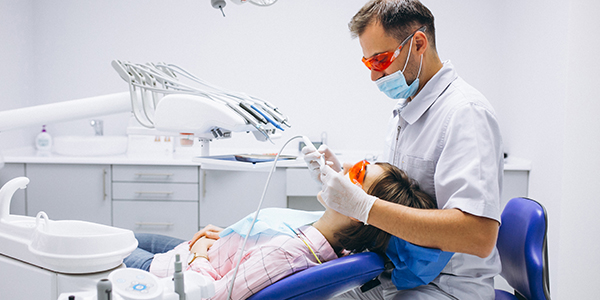What Does Maxillofacial Surgery Do?
Maxillofacial Surgery is a branch of dentistry that deals with the solution of all kinds of inherited or subsequent pathological problems in the mouth, face and jaw region.
The Department of Maxillofacial Surgery deals with all kinds of disorders of soft tissues such as tongue, lips, cheeks, salivary glands, teeth, jaw and jaw joints in the mouth. However, diagnosing the condition of patients with the disease and performing surgical procedures if necessary are in the field of Maxillofacial Surgery.
Maxillofacial Surgery is responsible for the treatment of individuals who need special care and have chronic systemic diseases (physical / mental / disabled individuals)
Surgical applications planned by our doctors according to the type of procedure to be performed on the patients and the stage of the disease can be performed using local or general anesthesia.
What is Maxillofacial Surgery?
Jaw Diseases and Surgery is the name given to the surgical branch of dentistry that deals with the diagnosis and treatment of diseases, deformations and injuries related to the mouth, teeth and jaw.
The majority of patients who apply to our clinics have oral problems such as wear and tear on their teeth and jaw joint pain.
Among the problems that Maxillofacial Surgery deals with are the problems that people experience during eating, such as chewing, biting and swallowing food.
Treating problems arising from the abnormal condition of the mouth opening, such as respiratory disorders, speech difficulties, snoring, are also included in the applications of maxillofacial surgery.
Diseases of Maxillofacial Surgery
Our patients who come to our clinic for Maxillofacial Surgery are examined by our Oral, Dental and Maxillofacial surgeons who are specialized in this field. Here are some of the diseases that we deal with under the maxillofacial surgery department in our clinic;
Extraction procedures of impacted teeth and complicated teeth,
Treatment of cyst tumors formed in the jaw,
Treatment of dental lesion in the bone,
Healing of cleft lip and palate,
Implant applications for missing teeth,
Making the hard and soft tissue corrections needed during dental application,
Correction of hard and soft tissues, if needed, before prosthesis procedures,
Healing of fractures in the face and jaw,
Also in the medical and surgical treatment of salivary gland disorders,
Correction of deformations that cause aesthetic and functional disorders in the mouth, chin and face by surgical methods,
Treatment of bone necrosis in the jaws during drug and radiotherapy applied to the patient during cancer treatment.
Who is a Maxillofacial Surgeon?
Maxillofacial Surgery Specialist; They are dentists who perform surgical procedures to treat diseases, injuries and defects in the soft and hard tissues of the jaw area.
Dentist candidates who want to become a Maxillofacial Surgery Specialist complete a minimum of 5 years of undergraduate education at the Faculty of Dentistry, and then take the DUS (Dentistry Specialization Examination) after graduation.
You can view the education history of our Specialist Maxillofacial Surgeons, who provide efficient dental treatments to the problems experienced by our patients in our clinic, in the section of our doctors on our website.
Maxillofacial Surgery Duties and Responsibilities
The main duties of Maxillofacial Surgeons are to improve the jaw function and appearance of patients. Other duties of dentists specialized in this field;
Making the first examination of the patient, determining the treatment needs and analyzing the data obtained,
Collaborating with other professionals such as restorative dentists and orthodontists to plan the treatment to be applied to the patient,
Applying anesthesia or sedatives to the patient to limit the pain that may occur during the treatment,
Performing the necessary surgery to help regenerate missing bone and gingival tissues,
Providing emergency response for facial injuries, including broken bones on the face of patients,
Performing chin surgeries to treat conditions such as cleft lip and chin growth problems,
Removal of tumors and other abnormal growths in the mouth and face areas with the help of surgical instruments,
Treatment of jaw infections in patients,
Performing minor aesthetic procedures by applying the necessary improvements in the jaw and cheekbones with the help of laser and botox,
Last but not least, showing loyalty to the privacy of the patient

